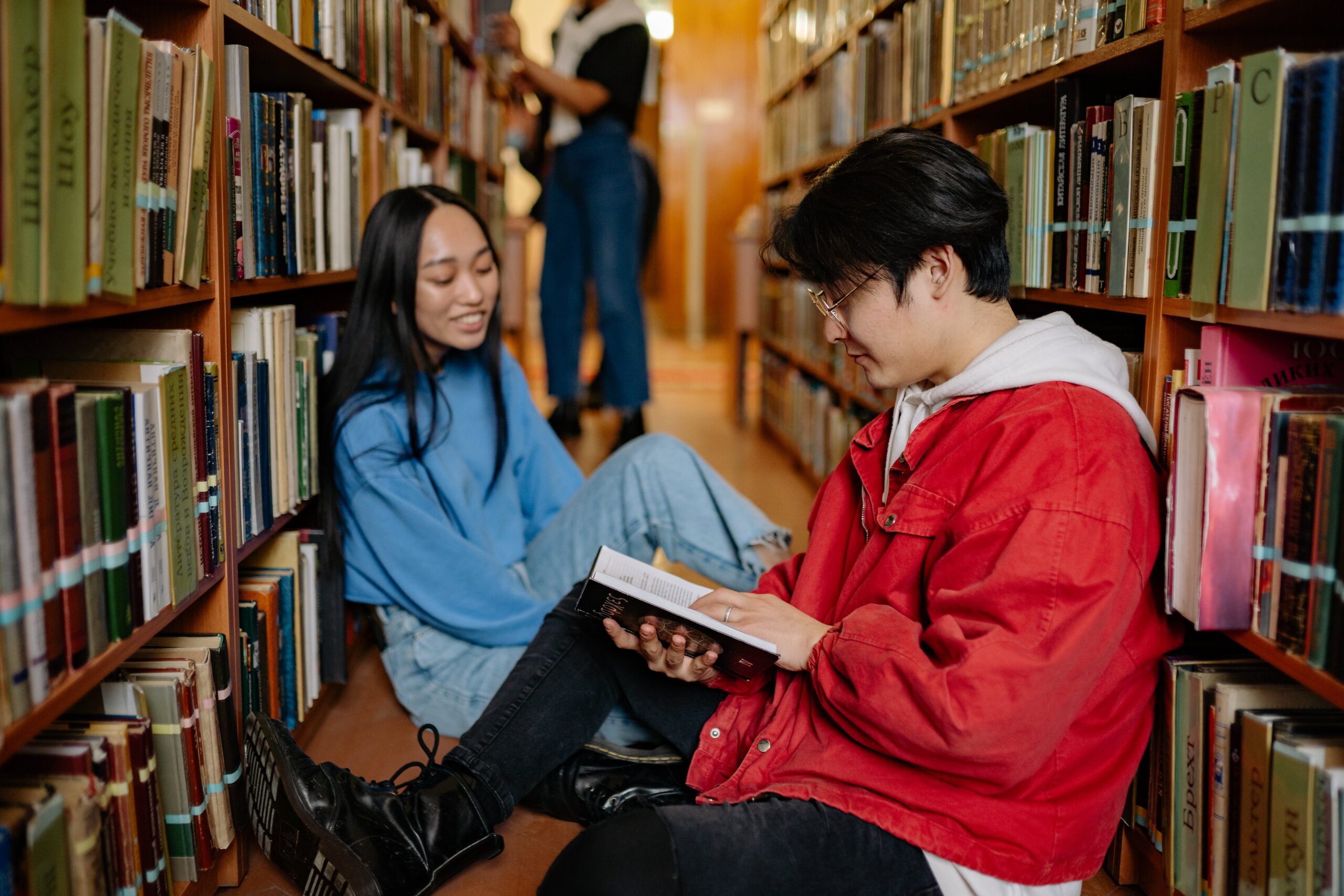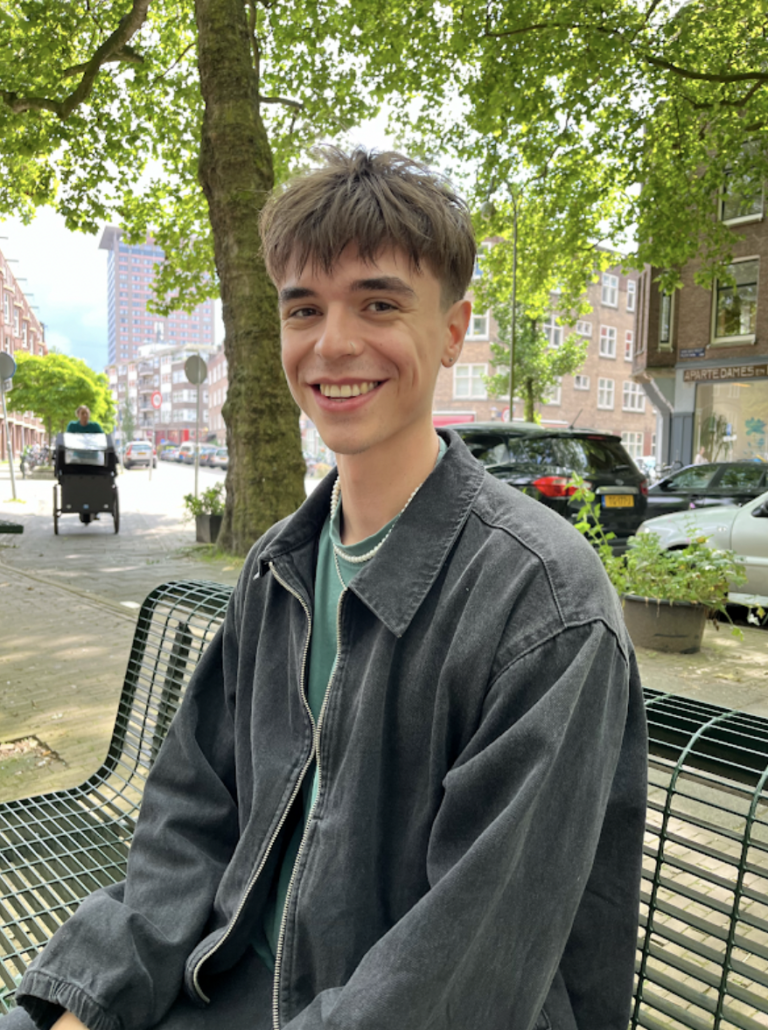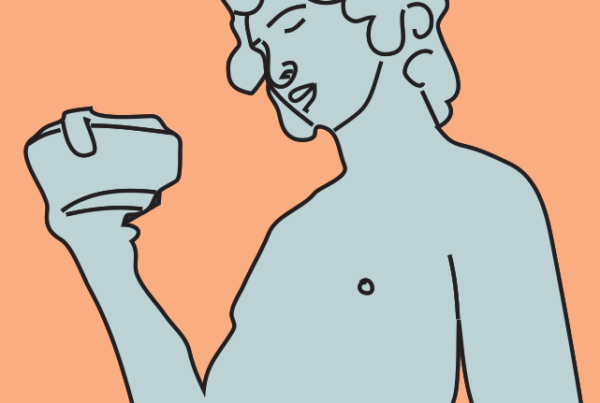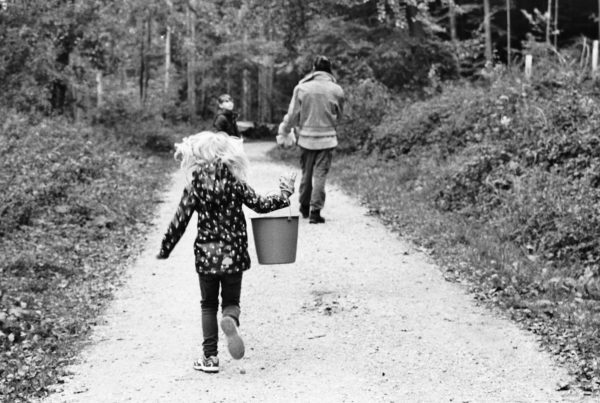
Starting university is a huge step in our lives. By moving out of our parents’ place for the first time, we also move towards a new life shaped by plenty of experiences to come. To better understand this transformative time, we asked bachelor graduates to reflect on their time at UvA, both academically and personally.
Our college years are often the most transformative years of our lives. Living alone for the first time, becoming an adult, and leading our lives in a more pronounced direction. With a new academic year starting, we are taking a look back by asking graduates of the Psychology Bachelor’s program how the academic program and the past three years of their lives have transformed them. We hope that UvA psychology students who are struggling through the third semester or facing new and scary situations understand that they are not alone and that, after some reflection, our biggest hardships can become the greatest catalysts for change. Reflecting on critical thinking and understanding what they want, we asked students about their biggest transformations over the past three years, both academically and personally.
Starting university is a huge step in our lives. By moving out of our parents’ place for the first time, we also move towards a new life shaped by plenty of experiences to come. To better understand this transformative time, we asked bachelor graduates to reflect on their time at UvA, both academically and personally.
Our college years are often the most transformative years of our lives. Living alone for the first time, becoming an adult, and leading our lives in a more pronounced direction. With a new academic year starting, we are taking a look back by asking graduates of the Psychology Bachelor’s program how the academic program and the past three years of their lives have transformed them. We hope that UvA psychology students who are struggling through the third semester or facing new and scary situations understand that they are not alone and that, after some reflection, our biggest hardships can become the greatest catalysts for change. Reflecting on critical thinking and understanding what they want, we asked students about their biggest transformations over the past three years, both academically and personally.

Nesh, 22, Specialised in Social Psychology and Research Methods
Spiegeloog: What course within the Psychology Bachelor’s program transformed you the most?
Actually, Scientific and Statistical Reasoning (SSR; semester 3). SSR was one of the only courses that taught me to think differently. I still apply this every day when I am reading an article or hear about new scientific facts. I think if I had not taken that course, I would be a lot less critical of the information presented to me.
Spiegeloog: What was your biggest personal transformation in the past three years?
When I entered university, one of my biggest priorities was to have fun. The social interactions I sought were mainly to have a good time. I was not necessarily critical about the people I surrounded myself with as long as they entertained me. In the past three years, there was a shift where I began to care more about the quality of my relationships. I have become more critical about who I surround myself with—people who are there for you, who listen to you, and who show a real interest in your life that goes beyond just partying and having fun. In your Bachelor’s, you experience a lot of new and scary things which are often accompanied by hardships. These situations are difficult, especially if you do not have a solid backbone in the form of reliable friends behind you—people who are there for a long time rather than a good time.
Spiegeloog: What is your next step?
I will be pursuing my Master’s in Behavioral Data Science at UvA.

Anna, 22, specialised in Clinical Psychology and minored in Conflict Studies
Spiegeloog: What course within the Psychology Bachelor’s program transformed you the most?
The biggest academic transformation I have experienced within the program was thanks to Practical Training: Psychological Communication (PTPC; semester 3). Initially I’ve perceived all the workshops as a lot of effort and a nuisance. But it turned out to be one of the useful courses of the bachelors. It is applicable to absolutely any discipline. I believe it should be thought in other programmes as well. It teaches you how personal communication is so strongly shaped by the individuals personality and the way they choose to interact. It taught me to take the perspective of my conversation partner to understand how the other person is perceiving the conversation we’re having. I can then tailor the conversation to benefit both of us. It improves how you can reach patients but also people in everyday life. Before the course I knew that I could talk to people. What’s so difficult about that? But that there are ways to improve that communication which you can learn is such a valuable skill to have in any field. Communication is a two way road where you have to be aware of how you and the other person are interacting.
Spiegeloog: What was your biggest personal transformation in the past three years?
I think my biggest personal transformation would have to be related towards realizing that it’s okay to change your mind about the kind of person you want to be specifically your future and career. When I started my Bachelors I had a very set view on what specific path I want to take. I thought I wanted to work with children. That was a very narrow perspective. Don’t get me wrong it is important to have specific goals in order to work towards them. But throughout the bachelors I noticed that I am actually not necessarily interested in that anymore. In the beginning that was difficult to admit. I had this idea of how it should be while I was actually more passionate about something else. So I learned that in my academic life there will always be moments where I shift my focus and that it is absolutely alright to let go of ideas you were once keen about and focus things you truly want in that moment. There is no shame in that. That also applies to my personal life regarding friends, relationships and my personality. I have become more okay with changing the people I surround myself with and not being so stuck in my ways of who I am and who I want to be. You don’t have to stick to every single plan both professionally and personally. Because as you go through life and have different experiences it changes you. And it is okay to accept that change.
Spiegeloog: What is your next step?
I will be pursuing a Master in Neuropsychology in Madrid, Spain. I hope to become a clinical neuropsychologist one day and work in a hospital setting.

Jonas, 23, Specialised in Clinical and Social Psychology
Spiegeloog: What course within the Psychology Bachelor’s program transformed you the most?
Jonas: Academically, the program changed me the most in the sense that I became more structured and critical, especially because of SSR. I noticed that the world is not simply black or white and that it is important to question this notion every day. The world consists of multiple different shades, and there is more than just one truth. That helps me everywhere in life.
Spiegeloog: What was your biggest personal transformation in the past three years?
Jonas: I gained openness—to the world and other people. Through the program, I got to look at things from different perspectives. This was enhanced by being surrounded by people from across the world and working with them. That also forced me to come out of my shell and made me understand situations I do not necessarily personally relate to. The development of this openness cannot be signified by one specific event but accumulated over the past three years. This mosaic of experiences is only now coming together. I do not know how I ended up here. I just know that I have changed.
Spiegeloog: And what’s your next step?
Jonas: I will start and hopefully finish my Master’s in Neuropsychology at the University of Maastricht.

Nesh, 22, Specialised in Social Psychology and Research Methods
Spiegeloog: What course within the Psychology Bachelor’s program transformed you the most?
Nesh: Actually, Scientific and Statistical Reasoning (SSR; semester 3). SSR was one of the only courses that taught me to think differently. I still apply this every day when I am reading an article or hear about new scientific facts. I think if I had not taken that course, I would be a lot less critical of the information presented to me.
Spiegeloog: What was your biggest personal transformation in the past three years?
Nesh: When I entered university, one of my biggest priorities was to have fun. The social interactions I sought were mainly to have a good time. I was not necessarily critical about the people I surrounded myself with as long as they entertained me. In the past three years, there was a shift where I began to care more about the quality of my relationships. I have become more critical about who I surround myself with—people who are there for you, who listen to you, and who show a real interest in your life that goes beyond just partying and having fun. In your Bachelor’s, you experience a lot of new and scary things which are often accompanied by hardships. These situations are difficult, especially if you do not have a solid backbone in the form of reliable friends behind you—people who are there for a long time rather than just a good time.
Spiegeloog: And what’s your next step?
Nesh: I will be pursuing my Master’s in Behavioral Data Science at UvA.

Anna, 22, specialised in Clinical Psychology and minored in Conflict Studies
Spiegeloog: What course within the Psychology Bachelor’s program transformed you the most?
The biggest academic transformation I have experienced within the program was thanks to Practical Training: Psychological Communication (PTPC; semester 3). Initially I’ve perceived all the workshops as a lot of effort and a nuisance. But it turned out to be one of the useful courses of the bachelors. It is applicable to absolutely any discipline. I believe it should be thought in other programs as well. It teaches you how personal communication is so strongly shaped by the individuals personality and the way they choose to interact. It taught me to take the perspective of my conversation partner to understand how the other person is perceiving the conversation we’re having. I can then tailor the conversation to benefit both of us. It improves how you can reach patients but also people in everyday life. Before the course I knew that I could talk to people. What’s so difficult about that? But that there are ways to improve that communication which you can learn is such a valuable skill to have in any field. Communication is a two way road where you have to be aware of how you and the other person are interacting.
Spiegeloog: What was your biggest personal transformation in the past three years?
I think my biggest personal transformation would have to be related towards realizing that it’s okay to change your mind about the kind of person you want to be specifically your future and career. When I started my Bachelors I had a very set view on what specific path I want to take. I thought I wanted to work with children. That was a very narrow perspective. Don’t get me wrong it is important to have specific goals in order to work towards them. But throughout the bachelors I noticed that I am actually not necessarily interested in that anymore. In the beginning that was difficult to admit. I had this idea of how it should be while I was actually more passionate about something else. So I learned that in my academic life there will always be moments where I shift my focus and that it is absolutely alright to let go of ideas you were once keen about and focus things you truly want in that moment. There is no shame in that. That also applies to my personal life regarding friends, relationships and my personality. I have become more okay with changing the people I sorround myself with and not being so stuck in my ways of who I am and who I want to be. You don’t have to stick to every single plan both professionally and personally. Because as you go through life and have different experiences it changes you. And it is okay to accept that change.
Spiegeloog: What is your next step?
I will be pursuing a Master in Neuropsychology in Madrid, Spain. I hope to become a clinical neuropsychologist one day and work in a hospital setting.

Jonas, 23, Specialised in Clinical and Social Psychology
Spiegeloog: What course within the Psychology Bachelor’s program transformed you the most?
Jonas: Academically, the program changed me the most in the sense that I became more structured and critical, especially because of SSR. I noticed that the world is not simply black or white and that it is important to question this notion every day. The world consists of multiple different shades, and there is more than just one truth. That helps me everywhere in life.
Spiegeloog: What was your biggest personal transformation in the past three years?
Jonas: I gained openness—to the world and other people. Through the program, I got to look at things from different perspectives. This was enhanced by being surrounded by people from across the world and working with them. That also forced me to come out of my shell and made me understand situations I do not necessarily personally relate to. The development of this openness cannot be signified by one specific event but accumulated over the past three years. This mosaic of experiences is only now coming together. I do not know how I ended up here. I just know that I have changed.
Spiegeloog: And what’s your next step?
Jonas: I will start and hopefully finish my Master’s in Neuropsychology at the University of Maastricht.



